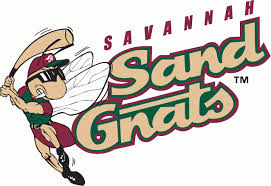Jaudon’s Jock Talk
By Travis Jaudon, Staff Writer
The Savannah Sand Gnats will be playing baseball at Grayson Stadium next season. That’s a fact. However, what remains unclear for the Gnats and the city of Savannah is whether or not the team will continue to play here after the 2015 campaign.
Jason Freier and Hardball Capital, the Sand Gnats owners since 2008, have proposed building a new multi-use outdoor stadium in Savannah to become the long-term home of the Sand Gnats. A city-funded feasibility test to determine if stadium construction is possible is close to completion. The study, which cost the city $55,000, is primarily examining the location at Savannah River Landing. The SRL is located just east of the Savannah Riverfront Marriott. Assuming the study goes well, city officials would then vote on the building of a new venue.
It’s a complicated and somewhat twisted scenario surrounding the Sand Gnats. Freier believes that the Sand Gnats success over the past five years has caused the Mets single A affiliate to outgrow the historic stadium in which they currently play. In other words, renovation of the current stadium is not an option. Brett Bell, spokesperson for the City of Savannah, told SavannahCEO.com as much.
“The owners of the Sand Gnats have been very clear,” Bell said. “If we don’t build a new stadium, they’re going to pick up the team and move it elsewhere.” Although Bell says ‘elsewhere,’ the team will undoubtedly relocate to Columbia, South Carolina if a new stadium isn’t built in Savannah.
So why wouldn’t the city approve the construction of a new stadium? Depends who you ask. Some people believe that the Sand Gnats ownership group is holding the city hostage by giving such an ultimatum: “Build it or we go.” Others say that the money used to build a new stadium could be more appropriately spent on other projects such as a new civic center in the downtown district. Some have also argued that if the Sand Gnats leave, another minor league team would certainly move to Savannah to fill the void. But the way I see it, none of these reasons seem good enough to balk at building a new ballpark.
I want to be clear: If the Sand Gnats leave Savannah after next season, the chances of professional baseball remaining in the city are slim-to-none. Regardless of what has happened in the past, the likelihood that another professional ball club relocates to a century-old Grayson Stadium is slim at best. Why would they? The city would then have already denied a previous owner (Freier) the chance to build a new stadium, making any interested parties even less likely to want to move to Savannah. If keeping baseball in the city is a priority to the city-council, and I’m not sure it is, the only option is to build a new venue. That’s exactly what they need to do.
Building a new stadium in Savannah is a home run, pun fully intended, for the city and its residents. First and foremost it would generate revenue for a district that sorely needs it. The proposed Savannah River Landing (SRL) site is in a Tax Allocation District, which allows the city to keep 100 percent of the tax revenue. Seems like a decent deal to me. Secondly, the building of the new stadium would kick start development around it. Shops, offices, hotels, restaurants, bars, etc. would all eventually spring up at the SRL site. That means more revenue streaming through the city. Freier told Savannah CEO that “Ballparks like these serve as great catalysts for development.” He went on to say that “in the six years since it opened, the ballpark we have in Ft. Wayne has spawned over $200 million in development that is either completed or currently underway.” That sounds like something Savannah should want right?
Finally, the stadium wouldn’t be used for only baseball and in fact, it would likely be used for non-baseball activities more often than you think. The Ft. Wayne stadium, which Freier and company envision the Savannah stadium to be modeled after, has drawn over 560,000 people annually for non-baseball community events. These events are, for the most part, outdoor concerts. Savannah could be a hotbed for these kinds of events, but they need the venue to host them. A new ballpark could, and would be that venue. For the sake of everyone living in Savannah, let’s hope city officials don’t botch this. If they fail to get a new stadium approved, professional baseball in Savannah is, as Freier puts it, “short lived.”




